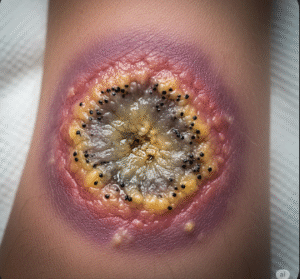Overview
Viral pneumonia is an infection of the lungs caused by viruses, leading to inflammation of the air sacs (alveoli) and impaired oxygen exchange. It can range from mild to severe and affects people of all ages, though the very young, elderly, and immunocompromised are at higher risk. Viral pneumonia is a common complication of respiratory viral infections like influenza and COVID-19. South Korea provides advanced diagnostic and treatment facilities to manage viral pneumonia effectively.
What is Viral Pneumonia?
Viral pneumonia occurs when viruses infect the lungs, causing swelling and fluid buildup in the alveoli, which hinders normal breathing. Common viruses causing viral pneumonia include influenza virus, respiratory syncytial virus (RSV), adenovirus, and coronaviruses such as SARS-CoV-2. Unlike bacterial pneumonia, viral pneumonia often requires different management approaches.
Symptoms
- Fever and chills
- Cough, which may produce clear or colored mucus
- Shortness of breath or difficulty breathing
- Chest pain, especially when coughing or breathing deeply
- Fatigue and muscle aches
- Headache
- Sore throat or runny nose in some cases
Causes
- Infection with respiratory viruses such as influenza, RSV, adenovirus, and coronaviruses
- Spread via respiratory droplets from coughs, sneezes, or close contact
- Secondary viral pneumonia following a primary respiratory infection
Risk Factors
- Age under 2 or over 65 years
- Weakened immune system due to illness or medications
- Chronic lung diseases such as asthma or COPD
- Smoking
- Hospitalization or mechanical ventilation
- Recent viral respiratory infection
Complications
- Respiratory failure requiring oxygen or ventilation support
- Secondary bacterial infections
- Sepsis (body-wide infection)
- Lung abscess or pleural effusion (fluid around the lungs)
- Long-term lung damage or scarring
Prevention
- Vaccination against influenza and COVID-19
- Good hand hygiene and respiratory etiquette
- Avoid close contact with sick individuals
- Wearing masks in crowded or high-risk settings
- Maintaining a healthy lifestyle to support the immune system
Treatment Options in Korea
South Korea offers comprehensive care for viral pneumonia, including:
- Supportive care – Oxygen therapy, fluids, and rest
- Antiviral medications – Such as oseltamivir for influenza or remdesivir for COVID-19, when appropriate
- Monitoring and management of complications – Intensive care support if necessary
- Advanced diagnostic tools – PCR tests, chest X-rays, and CT scans for accurate diagnosis
- Rehabilitation programs – For recovery of lung function post-infection
- Preventive healthcare – Vaccination programs and public awareness campaigns













